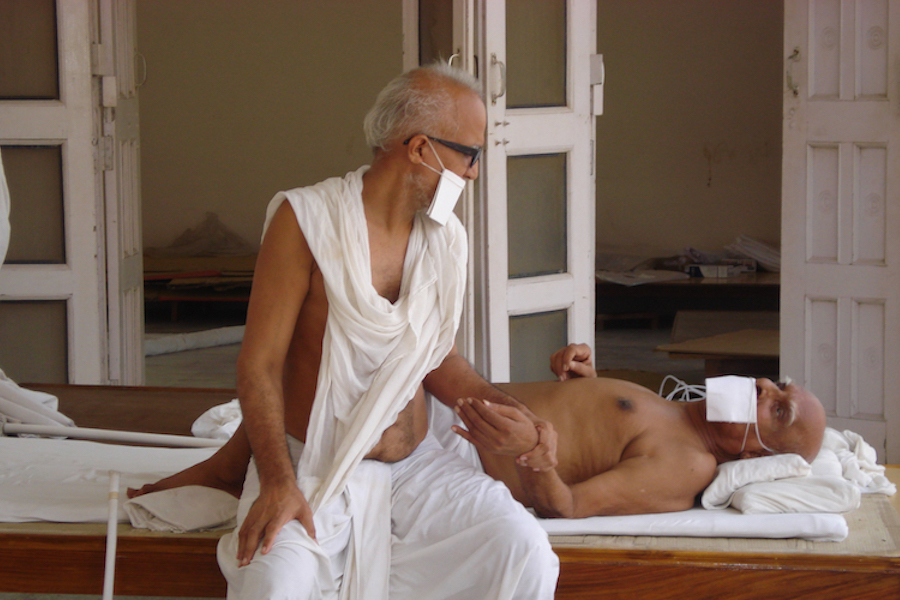
Culture
On Santhara, Religious Freedoms, and Equality in India
The Jaipur High Court recently allowed a writ petition seeking a ban on the Jain practice of Santhara within the state of Rajasthan. Santhara is a religious practice which allows one to end life by choosing voluntary death. The High Court held that the practice of Santhara amounted to suicide which is criminalized under Section 309 of the Penal Code. The High Court also held that Santhara, or any practice involving taking one’s life, is not an allowable religious freedom protected under Article 25 of the Indian Constitution.
This practice has been prevalent, on a relatively small scale, for at least 2,000 years and can be considered to be an essential part of a religion that prides selflessness as a virtue. Santhara is considered an alternative to an inability to live a normal life due to disease, famine, old age or any other infirmity. The Jain community venerates the person who commits Santhara because that person has made the ultimate sacrifice, with the utmost humility, for the sake of the greater good. In essence, Santhara can be called the most extreme form of Jain religious devotion.
The supreme court has stayed the order passed by the High Court and Santhara currently is legal in the state of Rajasthan. The logic behind the order of stay passed by the Indian supreme court is, presumably, that any ban on the practice would be highly impractical to enforce.
Does Santhara deserve legal protection? It could be argued that Santhara is fundamentally different from suicide. Suicide is the last step taken by a person who actively desires to die due to depression, anxiety, tension, anger or any other psychological difficulties. Santhara involves the person taking control of his death by fasting in order to escape from a situation which would have ultimately killed that person.
Santhara can be equated to euthanasia and shares most, if not all, of its features. Both are used by people wishing to control their deaths, because they have no escape from an illness. The supreme court in the Aruna Shaunbag case allowed passive euthanasia for persons trapped in a permanent vegetative state.
Santhara is different from the allowable kind of euthanasia in India. For a Jain to pursue Santhara, the person does not have to be suffering in a permanent vegetative state. Further, passive euthanasia implies the withholding of treatments necessary for the continuance of life. The law, therefore, affords unequal protection to those who are Jains and those who aren’t. Jains suffering from painful terminal illness can take the decision to end their lives, while non-Jains cannot.
It may follow that only members of a certain religion or practice would be allowed a pain alleviating treatment or medicine, such as cannabis, and others would not, on grounds that the consumption of cannabis may be an acceptable religious practice protected under Article 25 of the Indian Constitution, but only for members of that religion.
Should religion be a primary or secondary defining criterion for allowable freedoms in a secular state, or should it be left to individuals to do what they want with themselves? Freedoms when granted to a part of a populace should then be granted to all parts of that populace, within acceptable reasonable restrictions. The criminalization of the attempt to commit suicide by a non-Jain suffering from a terminal illness not in a vegetative state, does not fall within the boundaries of reasonable restrictions.
It is against the spirit of Article 14 to grant a freedom only to one religion when that freedom is one that would positively affect the lives – and deaths – of people of all religions or of no religion. The question then becomes – what makes a religion – and why does this religion get this and that religion get that and people of no religion get nothing? Is it the number of followers, or the length of time it has existed, the persecution it has suffered, the persecution it has wrought, its political grasp – and do these considerations deserve a place in a secular state? Would the parliament or courts grant the same religious freedoms to a newly formed religion that wanted the most convenient freedoms from all religions?
It, of course, stands to reason that the supreme court in deciding the issue of Jain Santhara will keep its proceedings limited only to the issue of whether Santhara amounts to suicide or not. The supreme court will keep the debate as limited as possible in order for the potential fallout from its decision to be as limited as possible.

